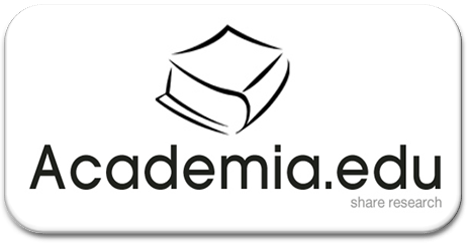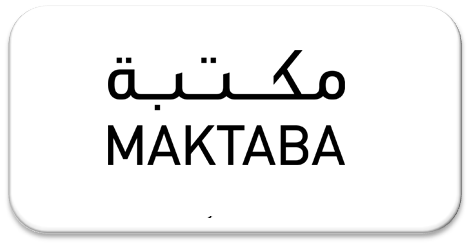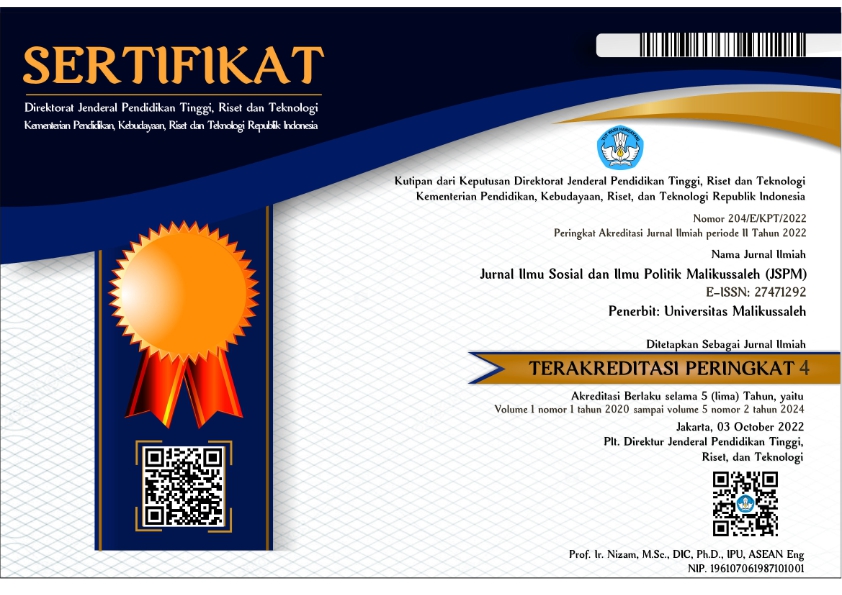INKLUSIVITAS MASYARAKAT ISLAM PEGAYAMAN MELALUI SISTEM PENAMAAN DIRI
Abstract
A name is a marker of a person's self in a social system. The Pegayaman Islamic Community is one of the Islamic communities in Bali. This Islamic society has integrated various elements of Balinese Hindu culture, including in its self-naming system. They use the naming patterns of the Balinese Hindu community. This research explores the naming patterns of the Pegayaman Islamic community which originates from the Balinese Hindu tradition. By using qualitative methods such as interviews, observations and literature studies, this research reveals that the naming system of the Pegayaman people uses birth order and gender like the Balinese Hindus. Typical Balinese names include Wayan for the first child, Nengah for the second child, Nyoman for the third child and Ketut for the fourth child. This name was then combined with an Islamic name. The naming pattern according to birth order resulted in the names Wayan Hasyim, Nengah Zakaria, Nyoman Imamulhayi and Ketut Muhammad. Names according to gender use the name Siti for women and Muhammad for men. This integration of Balinese culture reflects the inclusive attitude of the Pegayaman Islamic community in responding to conditions in Bali, fostering an attitude of tolerance and mitigating tendencies towards religious fundamentalism and radicalism.
Keywords
Full Text:
PDFReferences
Aliffiati, Wedasantara, I. B. O., & Budarsa, G. (2023). Ketut Muhammad: Sistem Penamaan Diri Muslim Pegayaman di Bali. UMBARA Indonesian Journal of Anthropology, 8(1).
Anom Kumbara, A. A. N., & Kartika Dewi, A. A. S. (2022). The Resistance Of The Pegayaman Islamic Community Against Stigma And Identity Retention Strategies In Buleleng Regency. E-Journal of Cultural Studies, 15(2), 49. https://doi.org/10.24843/cs.2022.v15.i02.p05
Antara, I. G. P. (2015). Tatanama Orang Bali. Arti Foundation.
Arif, M., & Lessy, Z. (2022). Another Side of Balinese Excoticism Local Wisdom of the Muslim Community in Gelgel Village, Klungkung Regency, for Preserving Harmony between Religious Communities in Bali. INFERENSI: Jurnal Penelitian Sosial Keagamaan, 15(2), 185–216. https://doi.org/10.18326/infsl3.v15i2.185-216
Basyir, K. (2019). THE “Acculturative Islam” As A Type Of Home-Grown Islamic Tradition: Religion and Local Culture in Bali. JOURNAL OF INDONESIAN ISLAM, 13(2), 326. https://doi.org/10.15642/JIIS.2019.13.2.326-349
Budarsa, G. (2014). Penyerapan Unsur Budaya Bali Pada Masyarakat Islam di Desa Pegayaman [Skripsi]. Universitas Udayana.
Budarsa, G. (2021). Konstruksi Identitas Masyarakat Islam Pegayaman. Universitas Udayana.
Budarsa, G., & Purwanti, N. P. A. (2021). Melihat Budaya Bali dalam Spirit Islam. Pusaka: Journal of Tourism, Hospitality, Travel and Business Event, 3(1), 1–10. https://doi.org/10.33649/pusaka.v3i1.76
Darmastuti, R. (2013). Mindfulness Dalam Komunikasi Antar Budaya. Buku Litera.
El Amady, R.-. (2015). ETIK DAN EMIK PADA KARYA ETNOGRAFI. Jurnal Antropologi: Isu-Isu Sosial Budaya, 16(2), 167. https://doi.org/10.25077/jantro.v16.n2.p167-189.2014
Kementerian Agama RI. (2019). Moderasi Beragama. Badan Litbang dan Diklat Kementerian Agama RI.
Koentjaraningrat. (2000). Pengantar ilmu Antropologi. Rineka Cipta.
Pageh, I. M. (2014). Analisis Faktor Integratif Nyama Bali-Nyama Selam, Untuk Menyusun Buku Panduan Kerukunan Masyarakat Di Era Otonomi Daerah. Jurnal Ilmu Sosial Dan Humaniora, 2(2). https://doi.org/10.23887/jish-undiksha.v2i2.2178
Pujaastawa, I. B. G. (2011). Perlawanan Terhadap Hegemoni Penguasa dan Pengusaha di Bali. In Putrawan (Ed.), Pilar yang Rapuh, Bali yang Runtuh (p. 69). Pustaka Manikgeni.
Ramdhani, F. Z., Busro, B., & Wasik, A. (2020). The Hindu-Muslim Interdependence: A Study of Balinese Local Wisdom. Walisongo: Jurnal Penelitian Sosial Keagamaan, 28(2), 195–218. https://doi.org/10.21580/ws.28.2.6769
Saihu, M., Anwar, H., Suhada, Aziz, A., & Balgis, L. F. (2021). Religion As A Cultural System: A Multiculturalism Education Model In Bali Based On Local Tradition. Psychology and Education Journal, 58(1), 4198–4206. https://doi.org/10.17762/pae.v58i1.1483
Santoso, B. (2006). Bahasa dan Identitas Budaya. Sabda: Jurnal Kajian Kebudayaan, 1(1), 44–49.
Sastrodiwiryo, S. (2011). I Gusti Anglurah Panji Sakti, Raja Buleleng 1599-1680. Pustaka Bali Post.
Segara, I. N. Y. (2018). Kampung Sindu: Jejak Islam dan Situs Kerukunan di Keramas, Gianyar, Bali. Jurnal Lektur Keagamaan, 16(2), 315–346. https://doi.org/10.31291/jlk.v16i2.563
Ulfa, M. (2013). Mencermati Inklusivisme Agama Nurcholish Madjid. KALIMAH, 11(2), 238. https://doi.org/10.21111/klm.v11i2.94
DOI: https://doi.org/10.29103/jspm.v5i2.15012
 Article Metrics
Article Metrics
 Abstract Views : 238 times
Abstract Views : 238 times
Refbacks
- There are currently no refbacks.
Copyright (c) 2024 Jonson Handrian Ginting

This work is licensed under a Creative Commons Attribution-ShareAlike 4.0 International License.
INDEXED BY:




.png)









Redaksi Jurnal Ilmu Sosial dan Ilmu Politik Malikussaleh (JSPM): Gedung Fakultas Ilmu Sosial dan Ilmu Politik Universitas Malikussaleh. Kampus Bukit Indah Jln. Sumatera No.8, Kec. Muara Satu Kota Lhokseumawe, Prov. Aceh, Indonesia. eMail: jspm@unimal.ac.id

This work is licensed under a Creative Commons Attribution-NonCommercial-ShareAlike 4.0 International License



.png)



